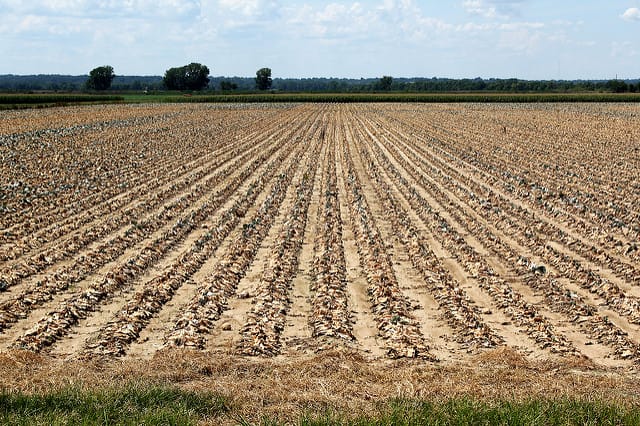Cornucopia’s Take: As markets drop, many farmers are plowing new fields to increase harvests, sometimes removing old windbreaks to do so. Shifting weather patterns present further challenges. The proposed Farm Bill would cut conservation funds, removing incentives for farmers to take much-needed steps to prevent wholesale soil erosion.
When the dust settles, farmers focus on land stewardship
Center for Rural Affairs
by Cora Fox
 |
In recent past, the Great Plains has experienced extreme weather conditions. Most recently, we witnessed very high winds combined with dry conditions, resulting in dust clouds reminiscent of the 1930s.
With a challenging agricultural economy, partnered with changes in land values, larger equipment, and farming practices, many farmers and ranchers are removing windbreaks. Budgets are tight and producers are trying to maximize use of the land, but risk the loss of valuable topsoil. Windbreaks can be used to control soil erosion by wind and water, enhance crop production, and protect livestock.
While weather events can’t be controlled, farmers and ranchers can be proactive in protecting our resources. Instead of tearing out aging windbreaks, they can replace trees and implement additional soil-conserving practices, such as reduced tillage or planting cover crops. Federal working lands conservation programs, such as the Conservation Stewardship Program (CSP) and Environmental Quality Incentives Program (EQIP), help producers adopt and implement these practices.
Recently, the House released their version of the farm bill – and it disincentivizes land stewardship. The bill eliminates funding for CSP, and cuts dollars for all working lands conservation programs by nearly $5 billion over 10 years. Farmers and ranchers are stewards of the land who need funding, tools, and resources to protect our soil and water. With a farm bill that doesn’t value conservation, should we be wary of another dust bowl?

